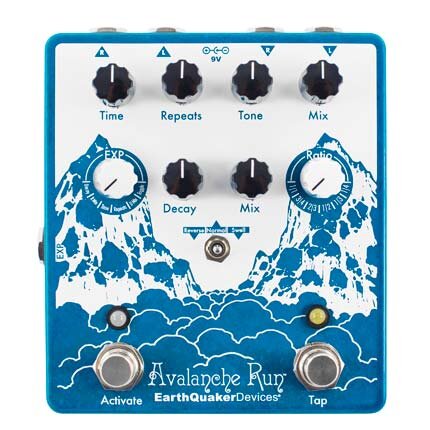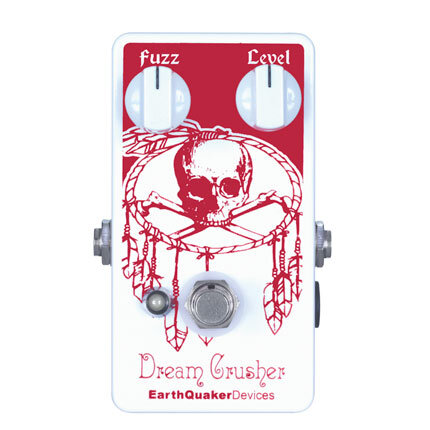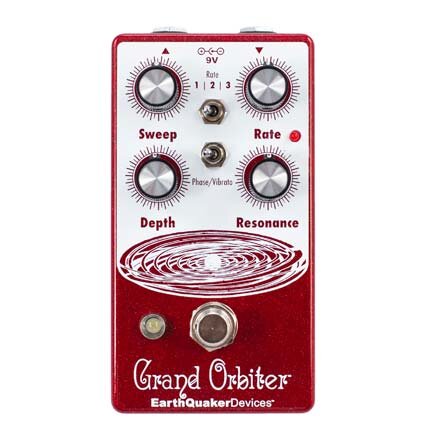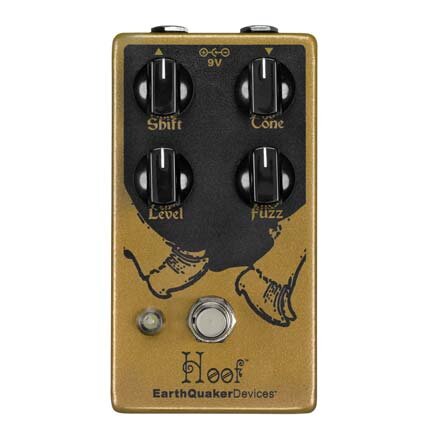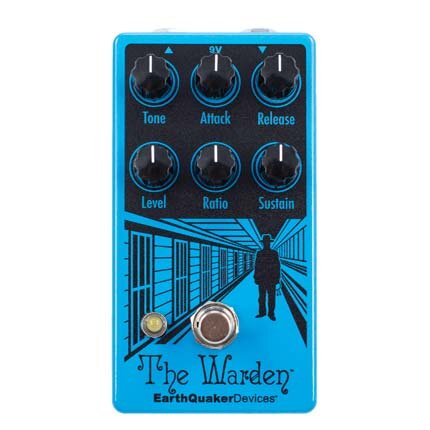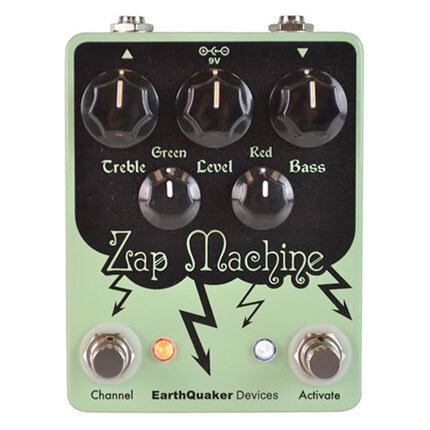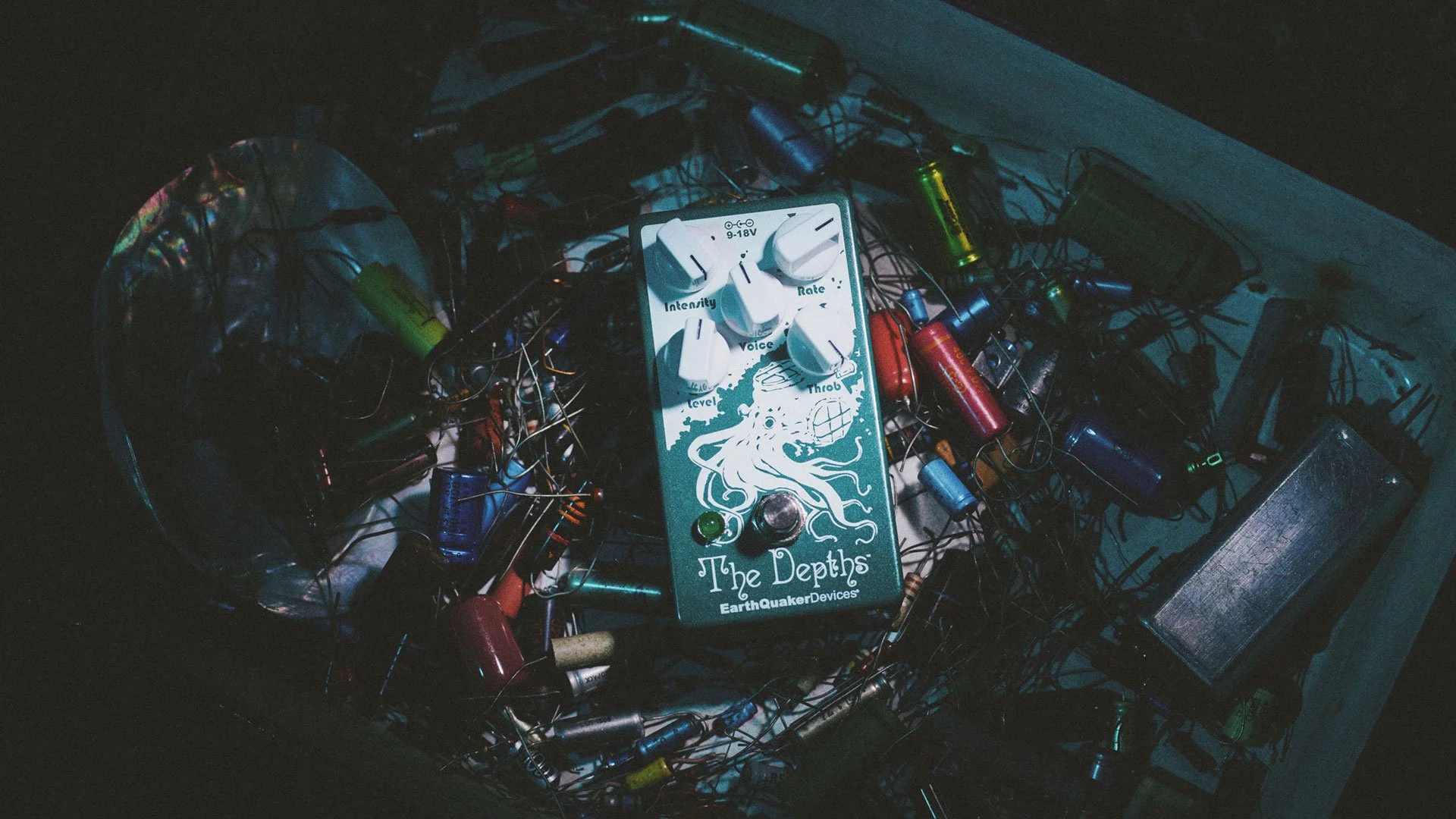Ahmed Gallab and the Legend of Sinkane
Guest User
In early March, right before the US was turned upside down by the coronavirus, I met up with multi-instrumentalist Ahmed Gallab in his mural-covered Brooklyn studio. What now seems like a lifetime ago, we chatted about his incredible journey - both geographical (Sudan to Ohio with stops in Utah and Massachusetts) and musical, from playing in high school hardcore bands to becoming a Jamie Stillman superfan (join the club) to the process of developing his solo project, Sinkane, all the while getting scooped up by bands like Caribou, Of Montreal and Yeasayer. We geeked out about gear, the Grateful Dead, William Onyeabor, and helped clear up a misheard Kanye West lyric. Well, sort of.




Anna Blumenthal: Your last album, Dépaysé, that came out last May, was conceived and written as a response to the way you were feeling amidst the racism and xenophobia that we’re surrounded by. You said it was the story of an immigrant’s journey of self-discovery in the Trump era. If you were to write a new album today – and maybe you are – what would the themes and the vibe be, and how do you balance feelings of anger, sadness, frustration, depressing, with positivity and unity in your music?
Ahmed Gallab: Right now actually I am working on a new record. Usually, when I start writing, I’ll have a very clear idea of what the album title is going to be and what elements of music I want to bring. It’s usually based on a few core ideas like African music, reggae, soul or funk music and classic American music like Americana, country western, classic rock. But this time I decided that setting those parameters upon myself has gotten a little boring and so I’m just allowing myself to do whatever I want and not let anything dictate how I write, and seeing where that takes me. I want to work with other people and that’s a direct response to how I’ve done everything in the past, but also the world that we live in now. All the stuff that’s been happening has made me want to connect with people more and have collaboration with other people to show people that’s what we do - we don’t separate ourselves from one another, we connect. Music is therapy to me. It really lifts me up. That’s what I want to do for people, talk about joy and about how I feel, cause I don’t want people like me to feel like they’re alone.
AB: Is Sinkane always the same members or are you the only constant member?
AG: There’s a few members that have stuck around for a while but it is my project. When I started it, I recorded all the music myself and I played all the instruments. And the more it’s developed into a thing the more I found that it’s exciting to add people, and so there are people who’ve been in and out throughout the fifteen years I’ve been doing it.
AB: Did writing and recording Dépaysé and your journey of self-discovery help you feel less disoriented or homeless, as you had said you had felt?
AG: Yes and no. I was really stoked about this album, and I felt like I had some landmark breakthrough in the way that I wrote it and how I collaborated with my band. It was the first time that I had written a lot of the lyrics on my own, and the subject matter was very personal, and the way that it all came out was a bit confrontational. And I think it was hard for people to swallow and that made me realize how much that actually affected me. I made this breakthrough musically and lyrically and I found a new part of myself. It was all this work I had been doing on myself but it didn’t get much of a response and that showed me how much I cared about that kind of thing. So I did find myself in a way, but I also discovered some things about myself; deeper things that I needed to work on which was a blessing but also hard to deal with. Feelings of acceptance, and wanting people to really like this album. It was tough, but it was a good lesson.
AB: I feel like that’s so relatable. Who makes an album and doesn’t care how it’s received?
AG: A lot of musicians will say, “I’m doing this for me”. And this album was for me. I made it for myself and it was so cathartic, but I truly wanted people to like it and to connect with the lyrics, but I think in this day and age something that’s so bombastic and confrontational and intense and serious was pretty hard for people to swallow. Although the lyrics are very positive and very uplifting, it’s not like the previous albums where everything is a bit more quiet and tender.
AB: Have you always felt that your music should be very personal and reflect your identity and politics and that your music should come with a message?
AG: Yeah. My favorite artists do that. Bob Marley, Sly Stone, Fela Kuti, James Brown, Curtis Mayfield - all of them have a very distinct and strong message in their music and they talk about their experience. It’s really inspiring when you can hear someone that sounds vulnerable that can speak about what they’re going through. Coming from Sudan and growing up outside of Sudan I grew up with a lot of weird stuff, a lot of personal identity issues, inferiority complex, not knowing my place in the world. Am I American? Am I Sudanese? I found other people who felt the same way and they expressed it through their art and it brought me to that art in a way that was indescribable. It made me feel really connected to it, so I felt like I should do the same thing. I want people like me to not feel alone and be able to listen to someone who they relate to. I had people who I related to musically but not someone who was like me. I didn’t see myself in the musical landscape, and I want young Sudanese kids to see someone who looks like them and someone who’s speaking their language and understands what they’re going through.
AB: You spent your formative years in Ohio? What brought your parents to Ohio from Sudan?
AG: Before Ohio we lived in Utah and Massachusetts, and before that we lived in Sudan. I’d go back to Sudan every summer and spend all summer there. My dad was a politician from Sudan and he was exiled when I was a kid after a coup took over the government that he was affiliated with. We happened to be in the United States when the coup happened and we were granted asylum in the US. So we had to stay and figure stuff out, and my parents went back to school and they both got their PhDs and my dad got a job at Hiram College in Ohio. I went to high school there, and that’s how I learned about Jamie and Julie. I used to go see Jamie play all the time in Party of Helicopters and Harriet the Spy. He was one of my idols. That’s how I got into music. My friend Drew played me a Harriet the Spy/Thumbnail split 10” record when I was in the 8th grade. Before that I didn’t know about any music other than what was on MTV. I think my favorite band was Oasis. He played me that and I was like, “What is this? Oh my god.” I was exposed to this world of music of people who I could touch - I could go see a show and there’s that guy I listen to.
AB: Was guitar your first instrument?
AG: No, drums. My first show was when I was 12 in Provo Utah, 7th grade, and then we moved to Kent, Ohio in the 8th grade and I started a band with a bunch of my friends. I would play any time I possibly could, anywhere, and I would see every show. It was an amazing time. I was a total sponge. I started playing guitar and bass my sophomore year of high school.
AB: Did you have different bands where you played different instruments?
AG: Yeah, I was in two bands. Starcrossed was my high school band that I played drums in, and I was in another band with the guitarist of Starcrossed called The Black and White and we both played all the instruments.
AB: How did you get into being a session player?
AG: I went to college at Ohio State, and I moved to Columbus in 2002, and I got deep into the hardcore scene. I was playing in a hardcore band called Sweetheart in Columbus, and another band called Pompeii, This Morning, and by the time I graduated school every band I was in broke up. I was developing what was to be Sinkane and I was going to shows and just hawking my music to all my favorite bands, and one of the bands I went to see was Caribou. I was a full-on Caribou freak at the time. Still am. I went to the Grog Shop and gave Dan Snaith my record. I was totally drunk and being a cocky asshole. My friends were playing the show so I thought I could hang out backstage and drink beer with them. I got kicked out of the club, but before I got kicked out I gave Dan my record and I told him, “I love your music and you’ve given me the confidence to do what I want to do.” A couple of months later he wrote to me and said, “I really like this. Let me know if you want to come to a couple of our shows, we’re gonna be in your area”, and I wrote him back and asked if we could open up the show in Columbus and he said sure. So I quit my job and I book a tour so we can end in Columbus and be super tight. My idea was that I’d show him how great this band is and he’ll ask us to go on tour and it’ll be my break. And my van broke down on the way to Chicago on the second day of tour and I had to go back to Columbus. I was looking for a job and I had my tail between my legs. I’m on my way to this job interview and I check my email and it’s from Dan Snaith. His drummer had broken his wrist and they needed a replacement drummer. It was a bcc, and I come to learn that he sent it to Steve Albini and all these people, and I was like, “I’ll do it!”
AB: Oh, he asked a ton of people to fill in?
AG: Everyone! He asked Kliph from the Flaming Lips and Matt Schulz from Enon and Holy Fuck and all these drummers. When he told me, I was like, “Of all these people, you picked me?” He called me five minutes later when I was on my way to the job interview, and he said, “We need you in Raleigh tonight.” I turned my car around, packed my bag and went to the airport. We went to a rehearsal space and I learned the majority of the set and then the next morning we were at Cat’s Cradle in Carrboro and rehearsed until 8pm. We played the show and it went well and then the next day we played in Athens, Georgia and then after the show Of Montreal came up to me asked if I want to play with them. And I said okay. I didn’t even really know who they were at the time - I knew that they were a band but I hadn’t listened to their music. I played with them later that year, and then I met the Yeasayer guys and they were in between drummers and they needed a new guy and I joined that band and it just kind of snowballed. Then it was four or five years later and I hadn’t done Sinkane in a long time, and I needed to bring my energy back to that. So that’s the short weird story. It was one hell of a ride. I rode it till the wheels came off. (laughs)
AB: It sounds like it! Did you have an album out with Sinkane at that point?
AG: I had two. I didn’t really have anything going on. I didn’t have a booking agent, I didn’t have any press; the records came out but the label didn’t have much of a serious infrastructure to promote a record. So I was like, I’m gonna gain as much information and knowledge from these people, and I was lucky. Dan Snaith is a mentor to me and he’s helped me all along the way. He’s a great guy. And I learned a lot from the Yeasayer guys, I learned a lot from the Of Montreal situation, and I made a lot of friends during that time.
AB: Where did the name Sinkane come from? What does it mean?
AG: Sinkane is a misheard word from the Kanye West song “Never Let Me Down”. The lyric is “I wanna give us us free like Sinke.” When I started the band in 2006 I was listening to that first Kanye record a lot and that song always came up and I was like, what is this. The full line is “I need my loot by rent day, but that ain’t what gives me the heart of Kunta Kinte, I’m trying to give us us free like Cinqué” and I didn’t know what ‘give us us free’ meant, but I found it really compelling. I thought he said Sinkane, and I made up this idea - he must be talking about this monolithic African god who inspired and influenced the entire continent of Africa and his story was passed down through folklore from one generation to the next and then came to the United States through the slave trade and now everyone who takes African American studies classes in college knows about this guy named Sinkane, and I didn’t take any African American studies classes so I don’t know about him and I’m super embarrassed. And mind you, I was doing this for about a month. Then finally I looked on the internet and I realized I completely misheard the word, he said Cinqué, and he’s referring to Joseph Cinqué who was a slave who led the revolt on the Amistad ship who made a big empowering speech where he said, “Give us us free”. I was like, well, Sinkane has this ring to it, I can’t shake it, I just finished an album - maybe I’ll be Sinkane and I’ll start that story. It was Google-proof and still is - I’m the only one named Sinkane - so it was pretty serendipitous.
AB: You’re the musical director and you play in the Atomic Bomb Band which plays the music of William Onyeabor. How did that come about and how often do you play?
AG: In 2014 or 15 we played with Femi Kuti at Summerstage. Afterwards hanging out backstage I saw this Swedish dude walking around wearing a shirt that just said Onyeabor and I was like, “Where did you get that?” I was a really big fan of William Onyeabor. In college I heard him through this African psychedelic compilation by Luaka Bop called World Psychedelic Classic 3: Love’s A Real Thing, and it changed my life and gave me an idea of what I wanted to do with music. That song in particular, “Better Change Your Mind” was the one that took me there, and I started to look for him and I couldn’t find anything. Then once in a while you’d find this mysterious LP on the internet and it would be like $3,000. None of us knew what was up with him, and me and my friends would talk about him and listen to that song ad nauseum. And then I see this kid wearing an Onyeabor shirt. He’s like, “I’m doing this project. I’m trying to talk to Femi Kuti because we want to know what he knows about William Onyeabor”, and I was so excited. We met up a week later and he told me that they had received all his music and they found out he was alive and Luaka Bop was putting together a band and they wanted me to be the musical director. And David Bryne wanted to be involved, and Damon Albarn and Money Mark. They said that Willie is a Christian and heavily into Jesus and doesn’t want to play, but he gave him his blessing to do a band. It was three years of the most surreal experiences. I played with my musical idols - David Bryne, Damon Albarn, Pharoah Sanders, Joshua Redman, the guys from Hot Chip, LCD Soundsystem, the Lijadu Sisters, these twin Nigerian sisters who made records around the same time as William Onyeabor, and Fela. It was a very intense and challenging project but we had a great time. Right now we’re not doing any shows but it was so magical.
AB: And you did an album?
AG: Yeah. We played Bonnaroo and then we went to a studio in Nashville and recorded with Jamie Lidell. He’s great, I love him so much.
AB: So all the musicians involved in that band were fans of Onyeabor, and that’s how they all came together?
AG: That was the idea. It was a bit overwhelming because every show we had different people perform, and so every show those songs had different interpretations. And that’s what made it so magical. We played “Good Name” or “Better Change Your Mind” like 16, 17 times, however many shows we had, and every time we played it it sounded different because whoever was singing interpreted it in this really crazy way. Every time, every person just gave it this whole new level of character and color and made it super fun.
AB: Were you in all the performances?
AG: Yeah, I was playing keys and singing background. I sang lead a little bit.
AB: How into gear are you, and what’s your current rig? In Sinkane you play guitar and keys live?
AG: Yeah, live I play guitar and a little bit of keys. And I sing, but when I’m making my demos I do everything. The last album I did it all and then I gave it to the band and we learned it together and we performed it in the studio as a band, but that was the first time I had done that. Prior to that, I would bring a lot of the music to a studio and then my guitarist, my bassist and drummer would redo a few things. I love gear. I have so much stuff. When we play live, all the gear on stage is mine except for Jonny Lam’s guitar rig. Pedals to me are like socks.
AB: New ones every day?
AG: Yeah, some wear out and you have to get them again or get something different. It wasn’t until this tour when I had to solidify a basic pedalboard. Up until then it was literally changing every day. There was an all EarthQuaker rig once, then my keyboard player, Elenna Canlas, would join the band and I’d lend her my Avalanche Run and I’d use a different delay pedal, or lend my Grand Orbiter phaser and I’d switch something up. I have so many pedals and they’re all on tour with us but I don’t play them all. Elenna has a shitload of pedals and she plays from my rig, and Jonny has his stuff, and our bassist as well, so every tour it was like, let’s try something new. Do I like this kind of fuzz or do I like this kind of delay? For every project I’ll do a different pedalboard rig setup. It’s just so much fun.
AB: When are you introducing pedals? Is it when you’re writing, is it before the live show when you’re changing it up, or are you always using different pedals every step of the process?
AG: There are a few effects that I really like. Fuzz, distortion, compression and delay. I’m a really big delay guy, and phase, I love those, so I’m always looking at different pedal makers who make those pedals, and vintage ones. There was an eight-month period where I was obsessed with phasers and I needed to figure out what kind of phaser I like. Do I like an MXR phaser or do I like an old school first generation Electro-Harmonix Small Stone style phaser, or the Bad Stone, or do I like regen, or do I like a slow transparent kind of thing? I went through like 15 phasers. I had a lot of fun doing that. And then I did the same thing with flange.
AB: What was the answer for the phaser?
AG: Honestly, my favorite phaser is the Grand Orbiter. The drippy, watery thing it can do when you get the resonance to a certain frequency with a slow sweep is my favorite phaser sound, and the Grand Orbiter gets the sound absolutely perfect.
AB: That’s really cool that you have the Zap Machine.
AG: I love it. You know what’s funny - when Jamie first started making pedals I bought the first version of the Hummingbird, and I didn’t even know it was him. I paid for it on PayPal and it said Akron, Ohio and I emailed the info account and said, “I’m so excited, I’m really happy there’s a cool boutique pedal maker out of Ohio,” and then when I got the box it said Jamie Stillman on it and I was like, “Whoa, this is crazy!” It blew my mind.
AB: What other pedals are you using a lot right now?
AG: I use The Warden compressor quite a bit. Right now I’m obsessed with this Stone Deaf FX Fig Fumb, it’s a Big Muff clone. It’s really surgical which I like - you can get whatever Big Muff sound you want, and it has a gate which is pretty amazing to me. Before this one I was using the Hoof fuzz, and before that I had the Dream Crusher fuzz. I really like the Dream Crusher fuzz, but the weather temperament made it kinda hard to tour with, and because I have a stereo rig I had to redo my modulation section so I just went straight Boss - the DD 500 for delay, the MD 500 for modulation and the RV 6 to run a full stereo modulation routing which is a Milkman amp and a Vox AC15. I really like this Brown Dog Gated Fuzz for bass. It’s an Australian pedal company. I have the companion envelope filter too. It’s very Parliament Funkadelic sounding and it has this really interesting in and out for the envelope so you can connect to the envelope part of the circuit even more and make it insanely squelchy sounding. It’s a pretty weird pedal which I like.
And I’m a huge Grateful Dead fan so all the Mu-Tron stuff is my jam and they reissued this which is cool. I found the guy who for a while was doing this, he was a tech for the Grateful Dead, and he made me a stompbox version of Jerry’s Stratoblaster.
The Jet Phase clone has been really fun to play with, like the old Roland Jet Phase, the Isley pedal. I’ve been trying to get a Jet Phase but they’re so finicky and annoying to deal with Mike Leahey from Make Sounds Loudly built me the clone.
Oh, and the Terminal - I played with this for a very long time, and I might even bring it back, I love this pedal so much. It’s so crazy. Such a fun pedal.
AB: How many pedals do you have?
AG: I think I have 50 or so. I’ve had my moments where I’ve had a lot more than that and then I sell a lot of them. I sold a bunch of them and bought a drum kit once, then I sold a bunch of them and bought a bass rig. I’ve been a bit more conservative than usual.
AB: What’s next for Sinkane? You said you’re working on new music?
AG: Yeah, working on a new record, and we’re mixing a live record which I’m pretty excited about. It’s from all the touring last year. We were able to record every show. Hopefully it’ll be a thing we’ll be doing more. There are a lot of other things I’m working on, but the ink hasn’t dried. I gotta wait for that and then I can talk about it more.
Check out Sinkane’s website to watch his amazing videos, pick up an album and some merch, and to stay in the loop for when we return to normalcy and new tour dates are announced.
DEVICES MENTIONED IN THIS ARTICLE
Anna Blumenthal handles Sales and Artist Relations for EarthQuaker Devices. She lives in Brooklyn, NY, plays bass in Sit N Spin, DJs 60s soul and R&B at various Brooklyn bars, and has seen Cheap Trick over 30 times.






